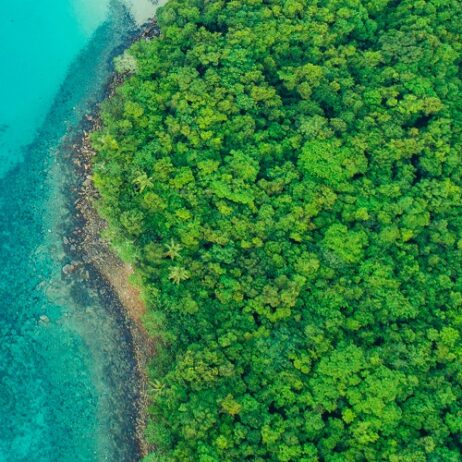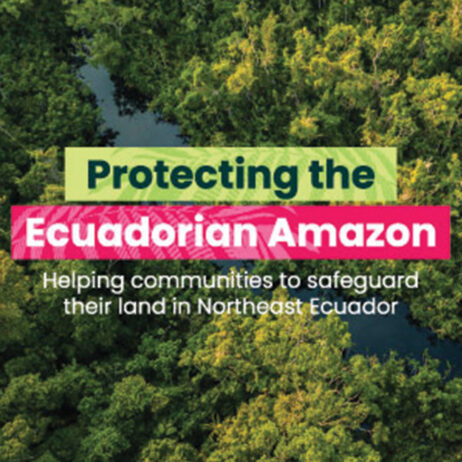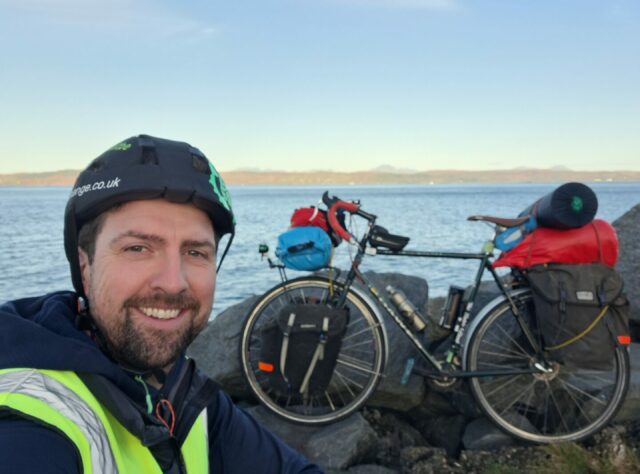
James Wragg spent eight weeks in the bicycle saddle, traversing 2,790km of the UK coastline all to fundraise for WLT and protect nature around the world. Credit: James Wragg
James Wragg has been raising funds for World Land Trust (WLT) through his Cycle for Change challenge. In total James spent eight weeks in the saddle, traversing 2,790km of the UK coastline… alone and in winter. Nature was a constant companion for James, testing him with tumultuous weather and terrain and rewarding him with captivating vistas and encounters with wildlife. He finished his incredible challenge having raised £11,682 (including matched funding) to give back to nature and protect threatened habitats and ecosystems.
In November 2021, James found himself stood at Southwold pier with “no real clue of what he was getting himself into”. Accompanied by his 30-year-old Dawes bicycle, lovingly named “The Noble Steed”, he was faced with a journey of firsts. He had never done a cycling tour before, nor had he ridden a bike fully loaded with gear for an eight-week trip. Nearly everything he had packed was second hand to stay in keeping with his mission’s low environmental impact goal. Not only did this include his very form of transport, but also the weathered 40-year-old canvas pannier bags he was using to carry his supplies and kit for his journey.
“Head North, keep the water to my right”
“Head North, keep the water to my right” he said to himself as he pedalled off into the open road. Nothing was to stand in his way, he thought. That was until he heard news of the Red Warning “threat to life” storms announced on the radio. Storm Arwen was to hit the North and East coastline the day he departed Southwold Pier, just one of many weather events which he had to struggle through during his trip. Until mid-December, he persisted to cycle through Lincolnshire, the steep hills of Yorkshire, wondrous Cumbrian mountains, and the cold and beautiful beginnings of Scotland. He camped where he could – sometimes in campsites, other times wild-camping, and often in the gardens of kind people who he encountered on his way. these kind-hearted people warmed his spirits even when his hands and toes were chilled to the bone from sub-zero temperatures.
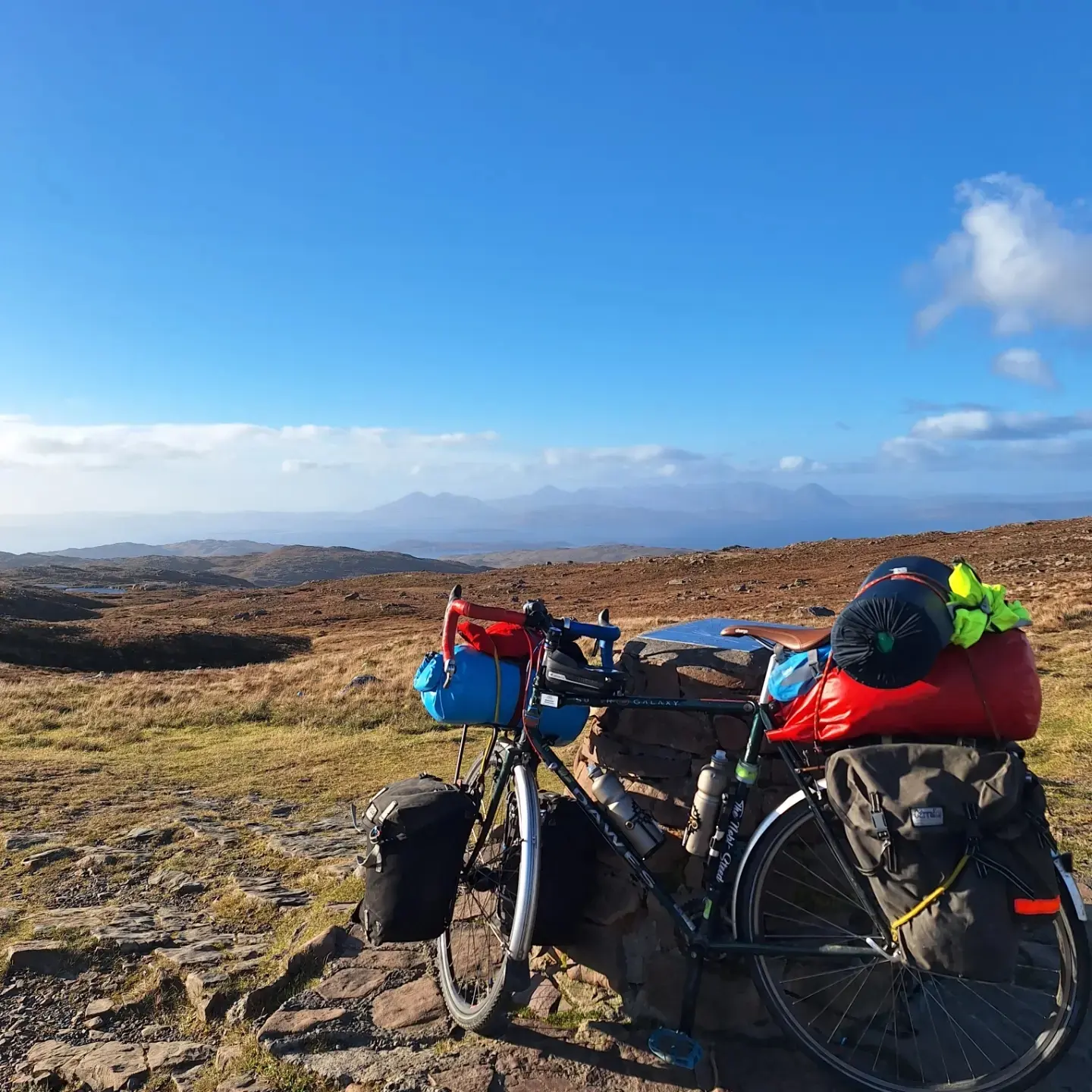
Credit: James Wragg
Unfortunately, when James arrived in Edinburgh the country was hit by the Omicron variant of Covid. Spending Christmas in a hostel in Carlisle wasn’t exactly how he imagined himself at this point in his journey. Away from his family, the loneliness he felt was counteracted by the goodwill, donations, and positive messages he received from supporters of his challenge. He continued south through the Lake District, Lancashire, Merseyside, Wirral and into Wales. But as the Omicron pandemic rose, James noticed the “feel” of his journey was shifting; it felt forced instead of flowing and so he decided to bring his challenge to an end in Aberystwyth. At this point James had achieved a six-week winter cycle tour through three countries, 26 counties, 2030 kilometres and 17,048 metres of elevation (equating to twice the heigh of Everest!). His supporters raised an incredible £8,400 which was far more than the £3000 target he had set at the beginning of his adventure.
Though he had achieved so much, James felt a longing to complete the two weeks which he had been forced to cut short in 2021. So, after much thought, he wanted to do justice to his initial challenge and decided to complete the missing chapter of his fundraising journey.
Setting out once again on his bicycle he left in October 2023 in the hope he would avoid the horrendous stormy conditions he faced in 2021. But the day he boarded the train to Scotland Storm Babet struck the northern coastlines of the UK. After the turmoil of train cancellations due to the storm, James eventually made it to a waterlogged and cold Edinburgh before dawn. His journey into Scotland very quickly veered away from his – albeit very vague – plan. The East coast had been ravaged by the storms, leaving roads closed with some sections covered by landslides and others were a foot under water. His route along the East coast soon became hopeless. He quickly designed a new route North through the Cairngorms to Inverness. Though not the coastal ride he had in mind, he was greeted by some of Scotland’s most beautiful landscapes with cavernous valleys, rolling hills, and snow-covered peaks. Heading West across Scotland, he found himself at the foot of Sgurr Mor where he sat in his tent, under the stars, watching and listening to Red Deer Stags, barking and bellowing at each other in the height of rutting season.
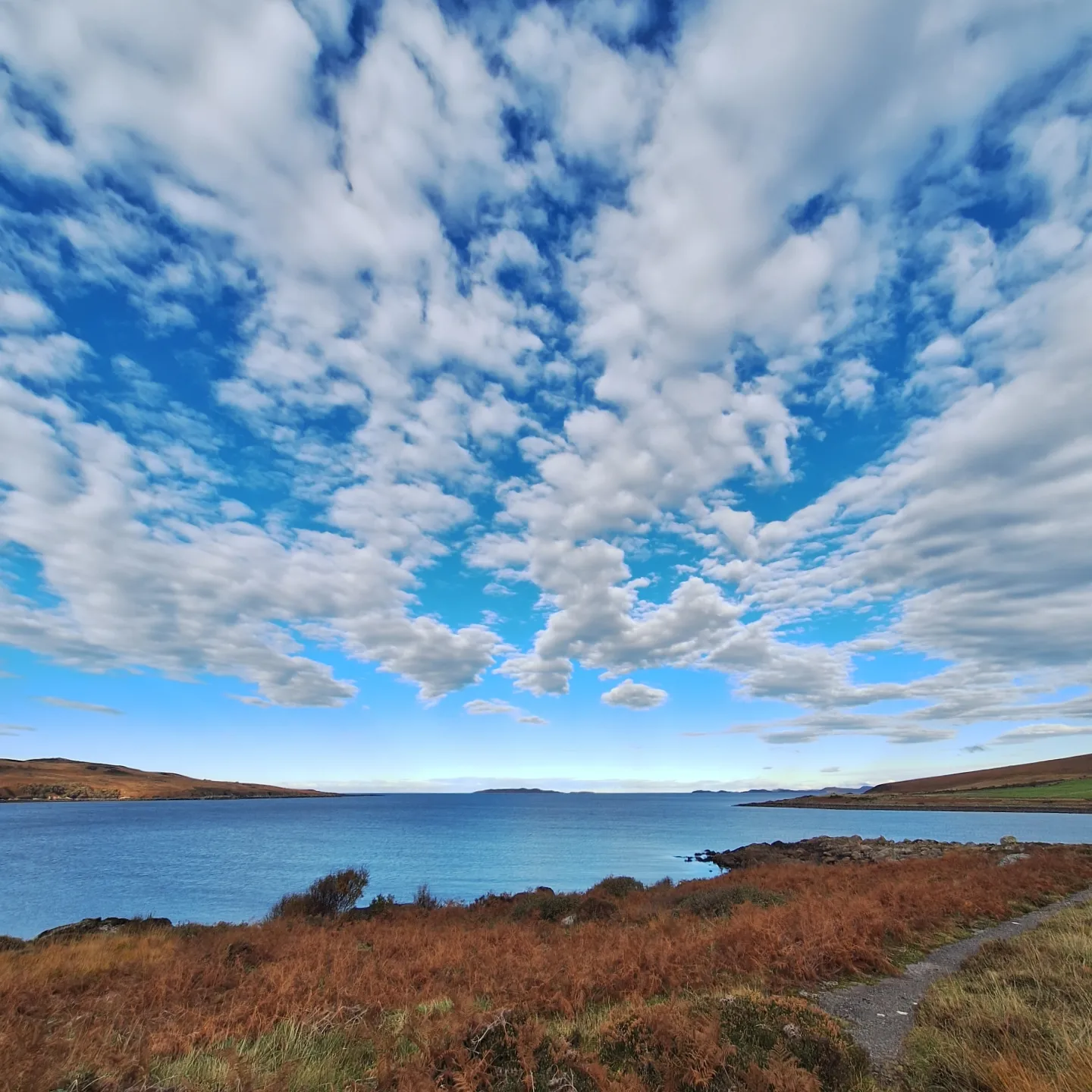
Credit: James Wragg
Nature as a companion
Over the following days, James had many special encounters with wildlife which punctuated his journey. Sitting on the Western coastal bay of Mungasdale, James was joined by a seal swimming just metres in front of him. On other occasions he had a fox walk beside him on his bike, a red squirrel watching him pass by a fence post it was occupying, a highland cow inspecting him from behind a hedgerow, and a stag nearly colliding with him as it appeared from behind a tree.
Whilst his progress was often beautifully interrupted by the appearance of a stunning ocean vista, a waterfall, or mountain-side loch, James sometimes feels he looks back with rose-tinted glasses: “I forget now that 30km or more of this ride was against brutal 30-40mph headwinds alongside Loch Maree. An endurance experience I’ll kindly forget once again.”
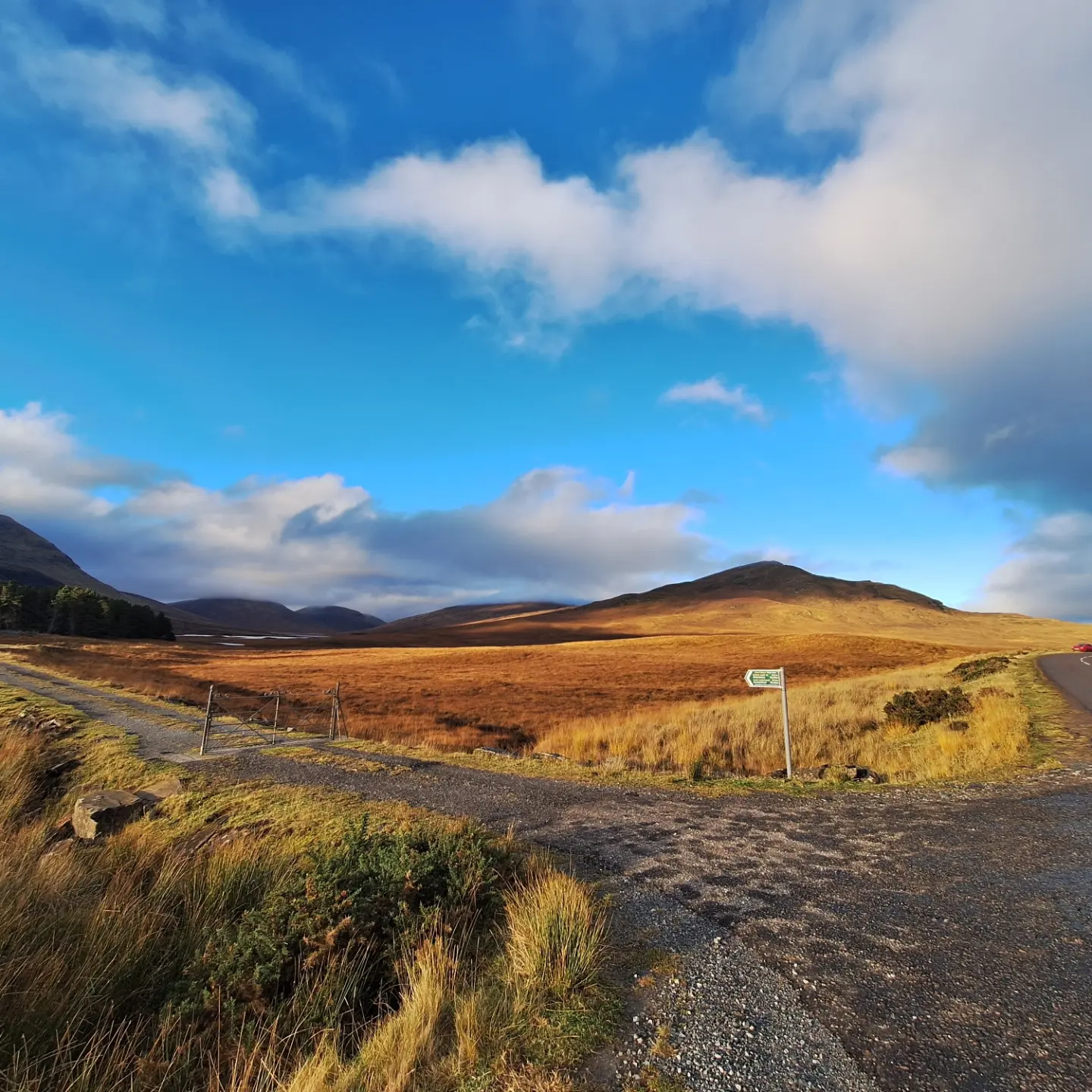
Credit: James Wragg
James also managed to traverse the infamous Bealach Na Ba, one of the UK’s most renowned and feared hill-climbs for cyclists. This 18km steep and often single-track roads winds up to a height of 626 metres above sea level were his only route south via the Isle of Skye. Admitting he should have done his research like a “proper adventurer would have done” he took a “how hard can it be?” approach to the challenge. The first attempt resulted in defeat on an impossibly windy day (gale force winds at heights of over 500 metres). The next day he successfully summitted the pass – still battling a ferocious 40mph winds at times and overcoming a 15% incline at its worst. But his ordeal was not over. He still had to cycle 50km and over 1000m of incline in what would become the toughest day in his entire Cycle for Change project.

Credit: James Wragg
Challenging the terms of ‘adventure’
Whilst James reflects on the tribulations faced in this challenge, the journey also changed how James views the term “adventure”. It showed that it is possible to embark on a great challenge one without taking a flight, having no support team, and with virtually no negative impact on the environment. In fact, one of the many organisations who partnered with James during Cycle for Change was Flight Free. Moreover, his experience highlighted to him the effects of climate change. The storms which interrupted and influenced his Cycle for Change journey are a testament to the changing and extreme weather events due to the climate crisis.
James works in the outdoor industry, educating and sharing his love for nature which has – in his own words – “literally given me everything: my career, my family, my home and my endless memories of adventure.” We are hugely grateful that James chose to raise funds for WLT, who he maintains “are one of the few charities who are solely focused on protecting the natural world, it’s biodiversity and those who care for it. In my opinion there is no better way for me to give something back to the environment that has given me so much, than raising funds and awareness for the World Land Trust.”
Visit the Cycle for Change website if you would like to find out more about James’ challenge, or if you would like to donate – you still can via his Just Giving page.
